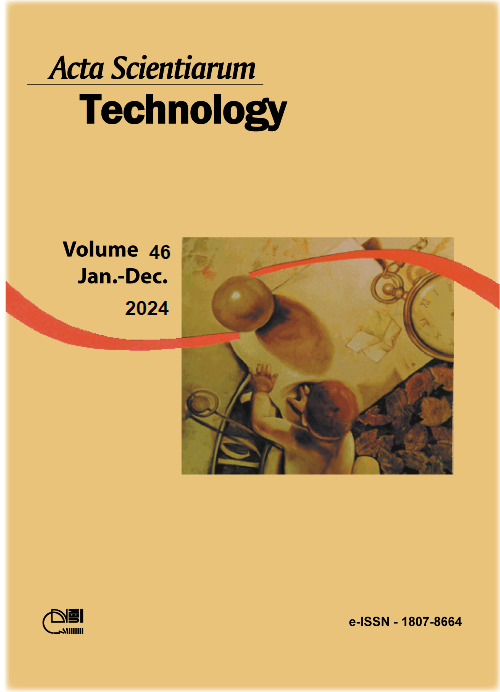Citric acid production by Brazilian garlic Aspergillus welwitschiae strains using orange residues
DOI:
https://doi.org/10.4025/actascitechnol.v46i1.69765Palavras-chave:
Citric acid; Orange residue; Aspergillus welwitschiae.Resumo
The global production of citrus fruits has expressively grown resulting in large amounts of residue. Orange residues are rich in carbon and could be used as substrates for production of biomolecules such as citric acid. In this study, wild and mutant Aspergillus welwitschiae strains isolated from Brazilian garlic were used to produce citric acid from orange residues, using solid-state fermentation. The results showed that the mutant A. welwitschiae UELAs 15.262/35 produced great amount of citric acid in the fourth day of solid-state fermentation using total and reducing sugars and producing cellulases. On the other hand, there was no production of citric acid by wild A. welwitschiae UELAs 15.262. The use of total and reducing sugars and the production of cellulases by A. welwitschiae UELAs 15.262 were detected, suggesting the use of carbon sources for the production of other metabolites. The great use of reducing sugars and cellulases production by A. welwitschiae UELAs 15.262/35 indicated the consume of carbon sources from the orange residue to produce citric acid at early times of fermentation. These findings lead to the possibility of biotechnological valorization of orange residues for acid organic production by A. welwitschiae strain.
Downloads
Downloads
Publicado
Como Citar
Edição
Seção
Licença
DECLARAÇíO DE ORIGINALIDADE E DIREITOS AUTORAIS
Declaro que o presente artigo é original, não tendo sido submetido í publicação em qualquer outro periódico nacional ou internacional, quer seja em parte ou em sua totalidade.
Os direitos autorais pertencem exclusivamente aos autores. Os direitos de licenciamento utilizados pelo periódico é a licença Creative Commons Attribution 4.0 (CC BY 4.0): são permitidos o compartilhamento (cópia e distribuição do material em qualqer meio ou formato) e adaptação (remix, transformação e criação de material a partir do conteúdo assim licenciado para quaisquer fins, inclusive comerciais.
Recomenda-se a leitura desse link para maiores informações sobre o tema: fornecimento de créditos e referências de forma correta, entre outros detalhes cruciais para uso adequado do material licenciado.



















